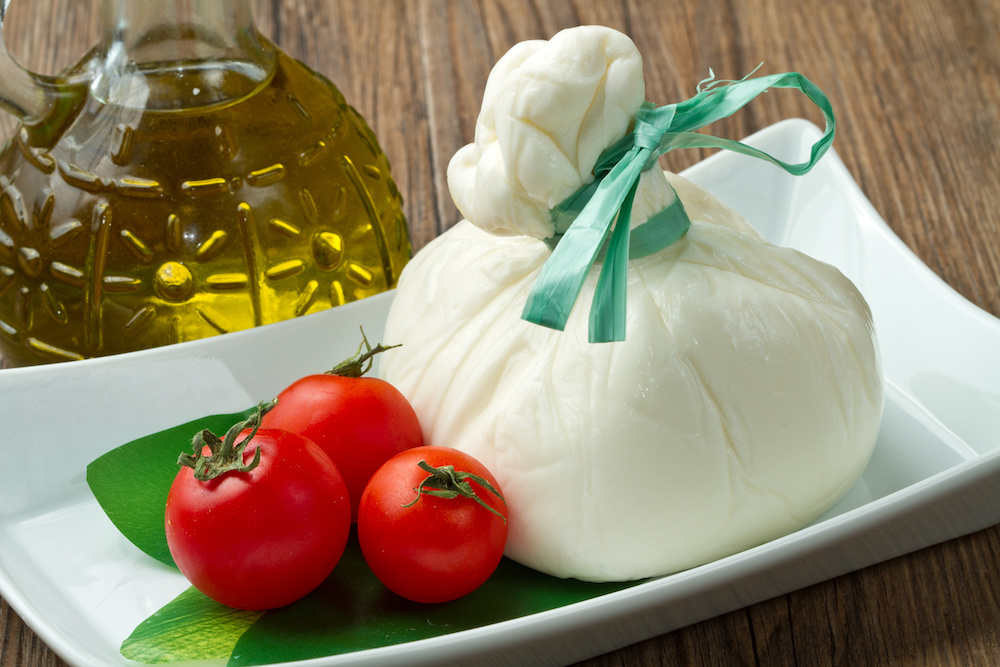Who are the "real" owners of typical products....... Inventions and protections? The opinion of The Food Project commission of the University of Parma
 |
|
Those who say that Pachino tomatoes, Panettone and many other products characterizing and constituting the image of Italian cuisine, are the result of fortunate coincidences are right. There is no scoop in that. We all know very well that the tomatoes arrived in Italy thanks to Christopher Columbus and that pistachios, along with many other food products, thanks to the Arabs. It is also true that tradition is sometimes used as a concept of identity and a flag of a country. Italy has a long history that is characterized by a social evolution like few populations in the world. It has been conquered militarily, economically and politically by almost all European kingdoms and each of them has left something in our country, also from a food point of view. The way of producing food has changed over the centuries and it is due to people, like Pellegrino Artusi, who for passion or mission, put words on paper leaving us those recipes that then became the "Italian Cuisine".
Italy itself is a relatively young country and before 1861 we could not speak of real Italian cuisine simply because Italy as a State did not exist. |
Over time, technologies have changed, tastes have changed, lifestyle has changed and Italian society has changed. From a food point of view, Italians have proved to be inventors, welcoming people, capable of integrating the recipes brought by those who migrated along the peninsula, with their own, merging traditions from family to family. There are families who have learned to recognize these renewed traditions as their own and today cheer for some preparations as identity.
But be careful, there can be no confusion; one thing is the culinary culture, the great gastronomy, which evolves, adapts and "contaminates" itself without particular obligations regarding the defense of denominations and therefore of intellectual property, another are the foods deriving from an industrial organization of the transformation of raw materials such as milk or meat, linked not only to history and territorial tradition, but also to systems of protection of the name. One thing is talking about Tagliatelle alla bolognese or sushi, but traditional and DOP products such as Prosciutto di Parma or Parmigiano Reggiano are a different matter.
Someone has "invented" and empirically developed these food products, based on the knowledge and technologies available at that time, in a specific territory and then, over time, has improved and adapted them with respect to technical knowledge and the previous historical context.
Obviously, tradition also evolves and changes in the context of the surroundings. Few or none are the PDO processed foods that are identical to their ancient ancestors. Over the years, agricultural landscapes, animal husbandry methods and consumption habits have changed. The environment surrounding a product evolves over time, imposing inevitable changes on the product itself.
The heart of the identity of a PDO product does not coincide with its technical overlap with the primordial product but with the culture of knowing how to produce the food of the populations and territories to which this PDO product belongs. It’s the ability of those tuning in the PDO production with new variables, without betraying its technical essence and the culture from which it evolved.
Evolution, if not indiscriminate, must represent an element of continuity in the development of a PDO product, its ability to change together with the world around it and the consumer’s. expectations.
Thus, the identity of the PDO does not lie in the compliance with ancient rules, almost always unwritten. It lies in its ability to respond to the expectations of a consumer, without betraying its essence.
As an example, cheese precise and written identity was recognized for the first time in Europe in 1951 with the Stresa Convention.
Italians, people of emigrants, have pervaded the world bringing along their products, smartly adapting them and their production methods, to the new agricultural and industrial systems they were inhabiting. Starting from a common way of making a product according to the knowledge of the time, Italians who remained in Italy and Italians emigrated, have diversified the evolution of the way of making that food and its characteristics according to who was going to consume it. Parmesan cheese made in the USA today is much different from its starting point of a century ago, as it had to satisfy a different market and it is not the black crust, which often is no longer such, that makes it more similar to the Parmigiano Reggiano cheese produced a century ago.
Each State or community of States has therefore developed over time systems for the protection of designations according to geographical origin and / or product standards.
Parmigiano Reggiano has changed over time to adapt, as it should, to the production environments and the needs of dairies facing growing demand. Its link with the territory and with the culture to which it refers is ascribed to the respect of a way of producing that over time has evolved into a shared production specification. The Stresa Convention has drawn the boundary between before, artisanal, also made of differences and great variability, and after, made of constant quality and shared production rules.
Rules that have evolved and adapted to the historical, economic, and cultural context where we live. Among these rules we find also those defining when a food is traditional and has to be considered typical or "of origin". These are the current rules, which people and economic agents agreed, which define the space for action and the legitimate behaviors of those who produce and those who sell.
By law, a food product is considered traditional after at least 25 years of its own history. This is because the legislator considered that, if during that period the food or the way of making it persist, these have indeed entered the experience of consumers and the production system of a territory. At the same time it is considered "of Origin" when a group of producers of a territory has given itself shared, binding production rules, controlled by a third party and which have been accepted by the Community through a legislative act. When writing the rules (the specification), the agents (the producers) take into account not only the history but above all the link with the geographical area of origin of the raw materials, therefore the territory, the available technologies and the evolution of consumer tastes that reflect, in turn, the cultural change of society. In other words, it is a territory that, through its forms of representation, writes the rules of production. The reason why these rules are written and are public is the need to avoid unfair behavior through the use of forms of intellectual property protection and leave the possibility for new producers to enter the system, if they, in turn, are willing to accept these rules.
There are at least two registers of products of origin in the world (defined by the treaties as "Geographical Indication") and, more precisely, one by WIPO (World Intellectual Property Organization) and the other by WTO (World Trade Organization) that respectively apply the Lisbon Agreement and the TRIPS Agreements. These rules are a tool of protection for entrepreneurs who apply the rules, but above all they protect consumers by guiding them towards an informed purchase without the fear of being cheated.
To obtain the status of "Geographical Indication", producers must therefore move within a legislative process that includes a series of steps that demonstrate a strong link with a territory from an historical and cultural point of view. The cultural aspect is a fundamental component as it is understood as the ability of producers to adapt production technologies to the local environment, overcoming the technological difficulties related to the territory, to take advantage of the natural resources present and to generate a product that, due to its intrinsic and extrinsic characteristics, is unique and cannot be reproduced in another place and with other knowledge.
For this reason, to give an example, only for Italy, if we look at the products "of origin" (PDO and PGI) we find different types of apples, different types of hard cheeses, different types of pasta filata cheeses, different types of cured hams (produced by the same breed of pork), etc. Just go to the website of the European Commission "eAmbrosia" to get an idea of how many products "of origin" are registered in Europe as Geographical Indications. The benefit of this complex architecture is that consumers do not have to be food historians or experts in typical products in order not to be cheated. It is enough to trust the signs of quality that express the commitment of Governments and Producer Associations to ensure compliance with production rules.
If the question is whether we can consider traditional and "Origin" products as respectful of history and capable of maintaining the characteristics for which they are recognized and protected, the answer is certainly yes.
Given this frame of reference, the scientific community in recent years, thanks to the well-being achieved and the financial resources injected, has contributed to the process of revision of some aspects of the production regulations with the aim of improving the quality of the products, supporting producers in their production path.
In particular, the University of Parma has contributed to the evolutionary process of the system by identifying and testing technological paths capable of combining tradition with the opportunities given by new technologies, in compliance with the rules.
It is a constant work without clamor and without scoops, aware that it is research linked to the products of the territories and to the producers who try to constantly improve the quality of their products.
THE FOOD PROJECT COMMISSION OF THE UNIVERSITY OF PARMA
Archives
- 18/09/2023 - Two awards for the best posters by young researchers at the 7th International Microbial Diversity Conference
- 06/04/2023 - Who are the "real" owners of typical products....... Inventions and protections? The opinion of The Food Project commission of the University of Parma
- 23/01/2023 - The Department of Law, Politics and International Studies of the University of Parma has been recognized by the Ministry of University and Research as a 'Department of Excellence'
- 31/03/2021 - PhD Position for the project HiStabJuice
